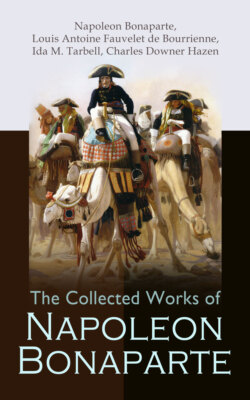Читать книгу The Collected Works of Napoleon Bonaparte - Charles Downer Hazen, Louis Antoine Fauvelet de Bourrienne - Страница 67
На сайте Литреса книга снята с продажи.
ОглавлениеMAXIM LXII.
Table of Contents
Tents are unfavorable to health. The soldier is best when he bivouacs, because he sleeps with his feet to the fire, which speedily dries the ground on which he lies. A few planks, or a little straw, shelter him from the wind.
On the other hand, tents are necessary for the superior officers, who have to write and to consult their maps. Tents should, therefore, be issued to these, with directions to them never to sleep in a house. Tents are always objects of observation to the enemy’s staff. They afford information in regard to your numbers and the ground you occupy; while an army bivouacking in two or three lines, is only distinguishable from afar by the smoke which mingles with the clouds. It is impossible to count the number of the fires.
NOTE.
The acknowledged advantage of bivouacking is another reason for adding an entrenching-tool to the equipment of the soldier; for, with the assistance of the axe and shovel, he can hut himself without difficulty. I have seen huts erected with the branches of trees, covered with turf, where the soldier was perfectly sheltered from the cold and wet, even in the worst season.
